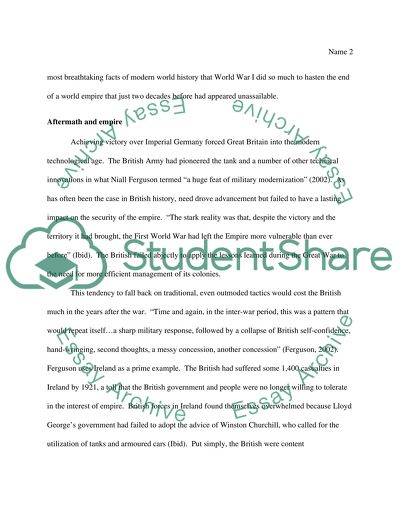Cite this document
(“World War One marked the beginning of the end of the British Empire Essay”, n.d.)
Retrieved from https://studentshare.org/history/1430729-discuss-the-view-that-world-war-one-marked-the
Retrieved from https://studentshare.org/history/1430729-discuss-the-view-that-world-war-one-marked-the
(World War One Marked the Beginning of the End of the British Empire Essay)
https://studentshare.org/history/1430729-discuss-the-view-that-world-war-one-marked-the.
https://studentshare.org/history/1430729-discuss-the-view-that-world-war-one-marked-the.
“World War One Marked the Beginning of the End of the British Empire Essay”, n.d. https://studentshare.org/history/1430729-discuss-the-view-that-world-war-one-marked-the.


